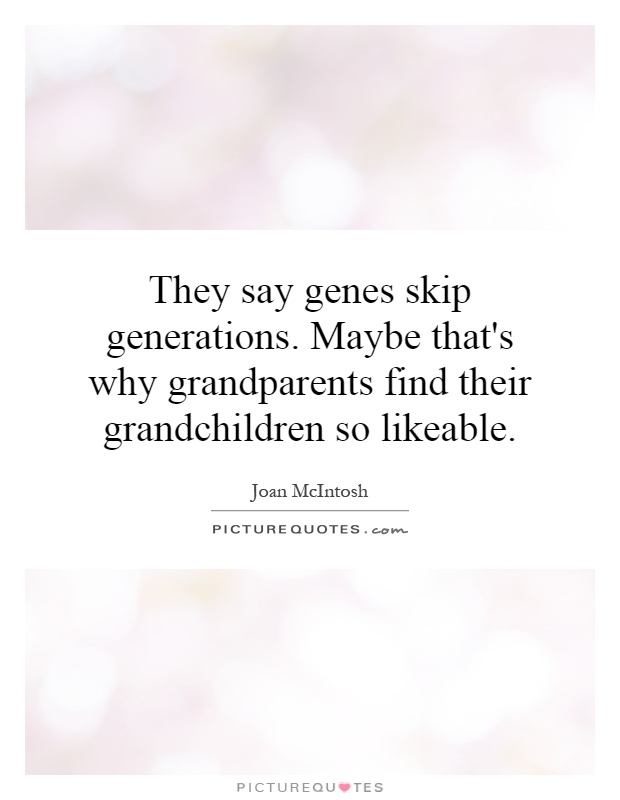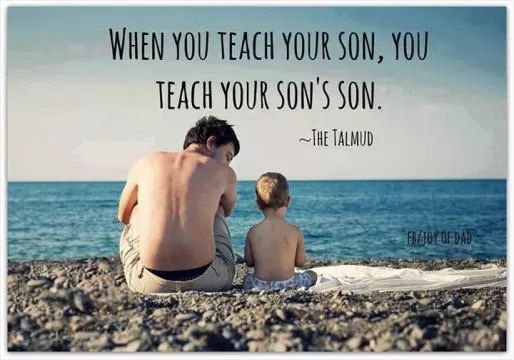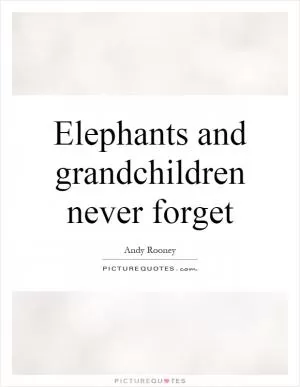They say genes skip generations. Maybe that's why grandparents find their grandchildren so likeable

They say genes skip generations. Maybe that's why grandparents find their grandchildren so likeable
Grandparents often have a special bond with their grandchildren that is hard to explain. There is a saying that genes skip generations, and perhaps this is why grandparents find their grandchildren so likeable. It is as if they see a reflection of themselves or their own children in their grandchildren, creating a sense of familiarity and connection that is unique to the grandparent-grandchild relationship.One possible explanation for why genes may skip generations is the concept of genetic recombination. During the process of meiosis, the genetic material from each parent is shuffled and recombined to create a unique combination of genes in the offspring. This means that certain traits or characteristics from the grandparents may not be passed down directly to their children, but may resurface in their grandchildren. This could explain why grandparents often see similarities between themselves and their grandchildren, even if they are not present in their own children.
Another factor that may contribute to the special bond between grandparents and grandchildren is the passage of time. Grandparents have the benefit of experience and wisdom that comes with age, while grandchildren bring a sense of youth and vitality that can be refreshing for older adults. This intergenerational dynamic allows for a mutual exchange of knowledge, support, and love that can strengthen the bond between grandparents and grandchildren.
Additionally, grandparents may feel a sense of pride and joy in watching their grandchildren grow and develop. They may see aspects of themselves or their own children in their grandchildren, which can be a source of comfort and happiness. Grandparents often play a unique role in the lives of their grandchildren, offering guidance, support, and unconditional love that can have a lasting impact on the child's development.












 Friendship Quotes
Friendship Quotes Love Quotes
Love Quotes Life Quotes
Life Quotes Funny Quotes
Funny Quotes Motivational Quotes
Motivational Quotes Inspirational Quotes
Inspirational Quotes